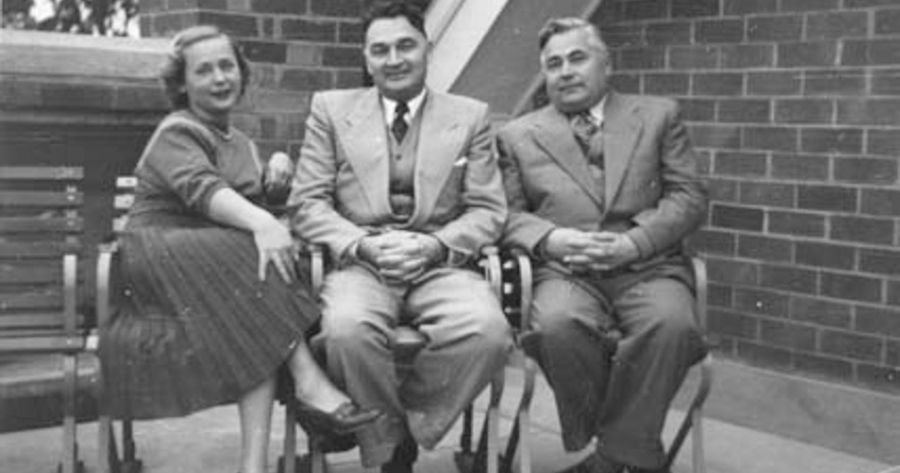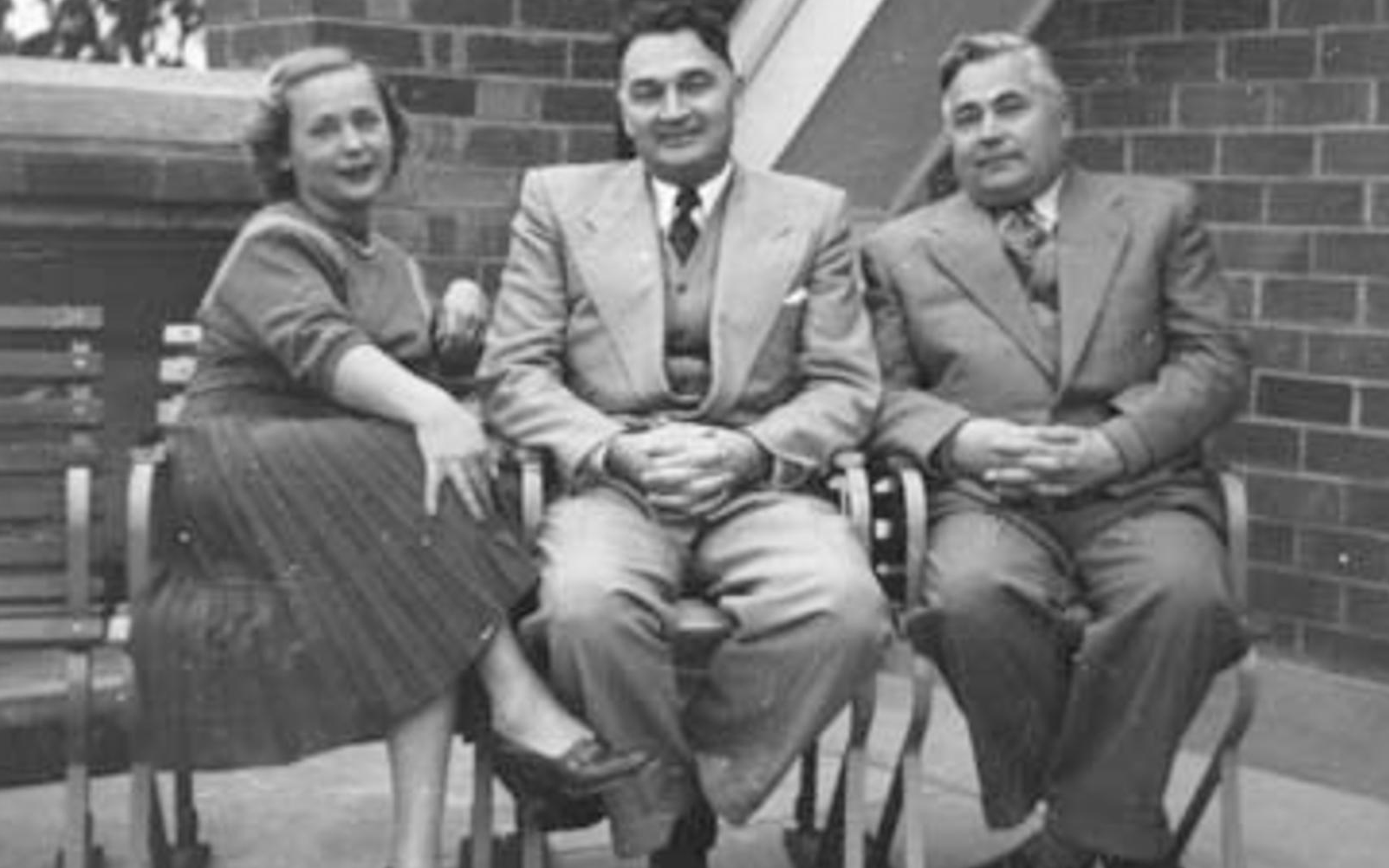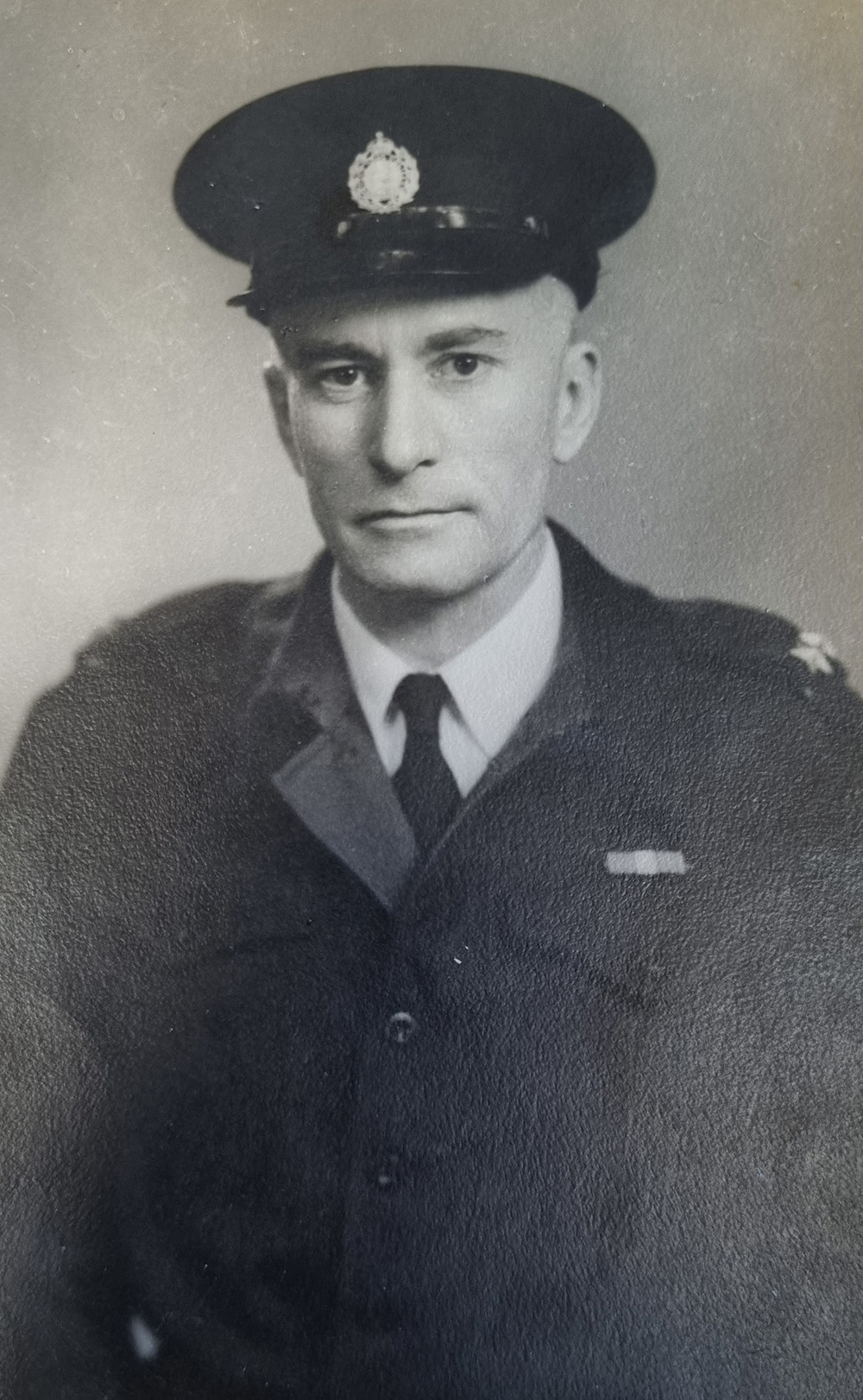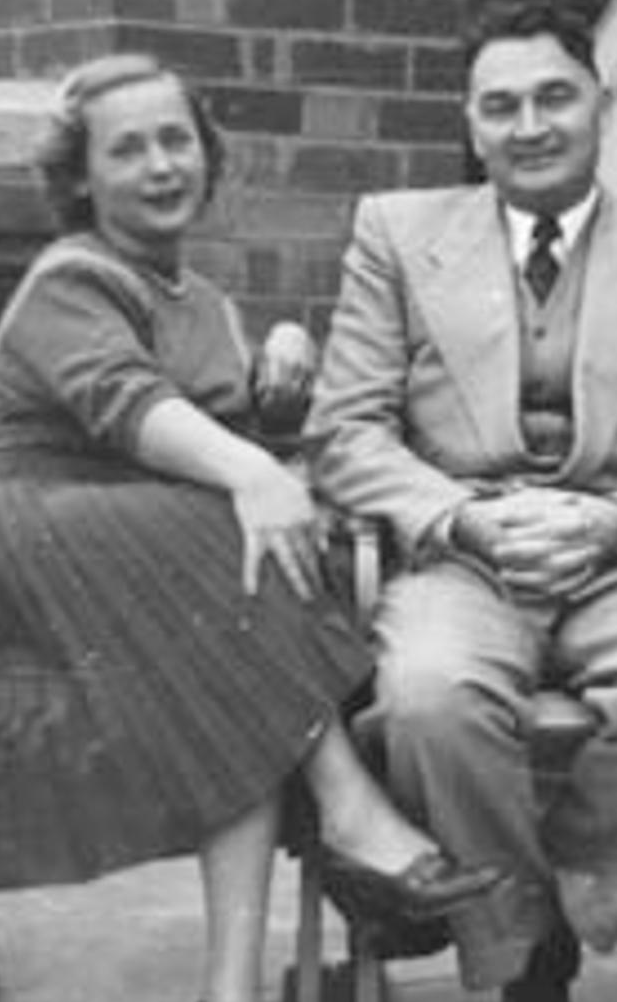
- Free Article: No
- Contents Category: Commentary
- Custom Article Title: The lives of ‘ordinary’ people: From Siberia and Shanghai to Kings Cross
- Review Article: No
- Article Title: The lives of ‘ordinary’ people
- Article Subtitle: From Siberia and Shanghai to Kings Cross
- Online Only: No
- Custom Highlight Text:
It was mid-afternoon when I turned a typewritten foolscap page from 1939 and found the name I had been searching for: Detective Sergeant Mischenko. The report was a pretty banal cry for resourcing. Poor Mischenko was doing the work of two detectives in Japanese-occupied Shanghai and desperately needed some assistance. On turning the page, I felt like Archimedes himself (though running through the US National Archives yelling ‘Eureka!’ might have been a touch dramatic). My journey to the suburbs in the middle of a clammy Washington DC summer had held no guarantees of finding this.
- Featured Image (400px * 250px):

- Alt Tag (Featured Image): ‘The lives of ‘ordinary’ people: From Siberia and Shanghai to Kings Cross’ by Ebony Nilsson
The lives of ‘ordinary’ people have, for me, long been one of history’s central attractions. I often wonder whether being a little nosy is an occupational requirement for historians. Working on immigration and surveillance, I gradually moved towards reading lots of government documents. Spend enough time reading files produced by bureaucrats and government departments, and you will become thoroughly convinced of the importance of ‘little’ people in big events. Great men (and they usually are men) may dominate our accounts of war, diplomacy, policy, and political scandal, but there are always others, lurking in the background. They tend to be harder to find. But their work behind the scenes is often equally – if not more – significant. And when we dig into the lives of ‘ordinary’ people, they often turn out not to be so ordinary after all. Vladimir Mischenko was no exception.
Mischenko grew up in a small Siberian railway village in tsarist Russia, where his father was the local priest. His grandfather was an army general; young Vladimir seems to have been more interested in this path, attending military school in St Petersburg. He was a teenager when the revolutions of 1917 broke out. What he made of workers and soldiers taking to the street, where he was, and what he saw – all of this remains a mystery. But he definitely left the new Soviet Russia. He would be an itinerant exile for the next few years: he drifted through Europe, Japan, and China before landing in northern Queensland in 1924.
What did he expect far-off Australia would be like? Vladimir was twenty when he arrived and worked as a labourer: first at a smelting works, then at a mine near Mount Isa. He was promoted to foreman, became naturalised, and signed up for the Army Reserve: everything expected of a self-made migrant and more. But then the Depression began to bite. Workers everywhere were being laid off. New jobs were hard to come by. If you sported a thick accent and a foreign name like Mischenko, your prospects were even worse. Vladimir began to look further afield; he managed to get a job as a probationary sergeant with the Shanghai Municipal Police, and left Australia for China.
When I initially discovered that Mischenko was recruited by ASIO in the late 1940s, I was surprised. Australia’s security organisation hiring a Russian who had been in the country only eighteen months? It seemed too great a risk. There was every chance he was a Soviet agent, planted to infiltrate Australian intelligence. Once I connected Mischenko to the Shanghai Municipal Police, I had my answer. Shanghai was awash with espionage in the 1930s. In Shanghai, a cosmopolitan treaty-port city, you were often as likely to hear Russian, German, French, or English spoken as you were Chinese. Spies of all sides carried out clandestine operations, trying to keep tabs on one another. The most famous of these was probably Richard Sorge, a German journalist and one of the Soviet Union’s most successful spies. But thanks to the efforts of author Ben Macintyre, Ursula Kuczynski (or Agent Sonya) has also received attention recently. The Shanghai Municipal Police, run by the British, did regular police work but it also had a ‘Special Branch’, which handled spying.
Historians, committed to rigorous, methodical searches, don’t always think about how much luck plays into their work. But I do wonder how much we owe to fortune. I connected Mischenko to Shanghai weeks before a research trip to the United States, and, as it happened, that’s where the Shanghai Special Branch archives had ended up. The files were captured and sold to the Americans during the tumult of China’s Communist Revolution. A few boxes were dropped in the Huangpu River and others were damaged in a typhoon, but most reached the custody of the CIA and then the US National Archives (including, thankfully, my new friend Randy). This was how I ended up in Washington DC, with a trolley full of archive boxes and a handful of files from which I could piece together Mischenko’s life in Shanghai.
 Vladimir Mischenko in police uniform, c.1940s (courtesy of the Marshall family)
Vladimir Mischenko in police uniform, c.1940s (courtesy of the Marshall family)
Mischenko started off as a regular cop in 1933 but was soon transferred to Special Branch, where he distinguished himself. Mischenko’s work was mostly in the Boarding House Section. This may sound innocuous, but it was a key part of surveillance in Shanghai. These officers monitored the city’s lodgings: they kept tabs on vice (gambling, prostitution, and the like) but also the movements of foreign visitors and political radicals. Many of the boarding houses in Shanghai’s International Settlement were run by Russians – Mischenko gained their confidence and, with it, bits of the unique information they had access to, as they watched lodgers come and go.
Mischenko also married in Shanghai, to a stenographer named Vera Kruse. Their son Donald was born just as war broke out in Europe in 1939. Although Mischenko tried to enlist with the British Army to fight Nazi Germany, he was ordered to remain at his post: espionage was perhaps more important now than ever. When Japanese security police swept through Shanghai in the early hours of the morning, rounding up Brits and Americans in 1942, Mischenko was one of those roused from bed, ordered to dress, and escorted to the police station. Having been naturalised in Australia, Mischenko was, at least in official terms, British. He was interned in a camp for the remainder of the war. Vera and Donald were interned, too, but sent to a different camp. These were dark years for many, including the Mischenkos.
After the war, the family moved briefly to Hong Kong before deciding to head for the country of their citizenship. The Mischenkos arrived in Sydney in 1947 and, within a few months, became the Marshalls. Vladimir had experienced living in Australia with a foreign name once before. It would take longer to shake the accent. From now on, he would be known as William (usually Bill) Marshall.
Australia’s newly formed intelligence service, meanwhile, was on the lookout for a Russian translator. It was running extensive surveillance operations on Soviet officials – and potential spies – stationed in Australia. Its phone taps and bugs produced an array of intelligence in the Russian language, which was generally unintelligible to ASIO’s roster of (mostly) former police and army officers. The new Bill Marshall – with a wealth of experience working in the British intelligence apparatus, straight from the streets of Shanghai and Hong Kong – was an ideal candidate. In 1950, Marshall was employed to work full time on translating the tapes from a Soviet official’s bugged apartment in Kings Cross.
One imagines these were not easy years for the Marshalls. Bill had lived in Australia before, but in North Queensland’s mining country, not Sydney’s suburbs. Vera and Don were completely new to the country, having spent the previous decade between cosmopolitan Shanghai and internment. 1950s Sydney – where the pubs shut at six and staples like garlic and coffee were still hard to come by – must have been something of a shock. But Marshall was thriving at work, at least.
It wasn’t just his linguistic ability that was useful – he could relate to the Russians. Marshall ran one of ASIO’s earliest attempts at securing a Soviet defector, in 1952, approaching a departing Soviet official. They played chess, drank, and talked of home (while ASIO footed the bill). Marshall could see early on that he was not a promising defection target. But it was an important dry run. The preparations proved useful two years later, when they got a much better candidate: Vladimir Petrov.
When Petrov, a colonel in Soviet intelligence, officially defected in April 1954, Bill Marshall was ready and waiting to meet him at ASIO’s safe house. The following day, Marshall travelled to Canberra with ASIO’s top officials to brief Prime Minister Robert Menzies. After Evdokia Petrov defected too – under more dramatic and better-known circumstances at Darwin airport – Marshall spent hours upon hours with the two Russian spies. He worked as the safe house team’s interpreter but didn’t just provide translations. Marshall assisted in managing the couple’s difficult adjustment to defection and their fractious marital relationship, in addition to attending hours of debriefing interviews. He helped the Petrovs – whose grasp of English was sound but not excellent – to tell their life stories, to explain the documents Vladimir had brought with him, and to provide detailed, technical explanations of the inner workings of Soviet intelligence.
This work only increased when a Royal Commission into Soviet espionage was called. ASIO’s big men – figures like Charles Spry, the Director-General, and Ron Richards, the New South Wales Director – would appear publicly at the Royal Commission hearings. But people like Marshall remained largely invisible. ASIO officers’ identities remain classified in perpetuity, not usually revealed even after their deaths. Marshall was named publicly for the first time in 2014, in the Official History of ASIO. But he – and other officers like him – had played a role in one of Australia’s great political dramas, the Petrov Affair. He shaped ASIO’s public face, particularly in translating the words and presenting the stories of the agency’s two star defectors. It was with the Royal Commission and the Petrovs that the Australian public learnt for the first time about its own intelligence service and about the activities of foreign agents in Australia. This was a narrative that Marshall helped to produce – though his name rarely appears in relation to the Affair.
Historians don’t always think about how much luck plays into their work
Figures like Menzies, Spry, and Opposition leader H.V. Evatt tend to dominate accounts of the Petrov Affair, and Australia’s 1950s generally. But there were lots of Bill Marshalls who had a hand in these events. Not all of them had lived through the Russian Revolution, spied in Shanghai, and spent hours with the Petrovs. I am sure there were other extraordinary stories among these ordinary figures.
My undergraduate students have been researching their own families’ migration histories, and I have been continually astounded by the tales they have dug up: everything from refugees to ‘blackbirded’ labourers, war criminals, mail-order brides, and surveillance. ‘Ordinary’ folk like these are harder to find in documentation. Their papers are rarely preserved in boxes neatly labelled with their names in national archives and libraries. Bits of their lives and experiences are always lost. But the work of piecing together their stories – with tattered files from Washington DC, forums in sketchy corners of the Russian internet, and plastic shopping bags of photographs, souvenirs, and documents stored in the spare bedrooms of the generous Marshall family – is, in my view, well worth it.



Comments powered by CComment